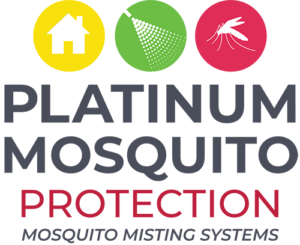
See how far we’ve come and what’s in store for the future
Every August 20th is World Mosquito Day, but don’t let the name fool you; this is not a day to celebrate mosquitos. Instead, it’s a commemoration of a momentous mosquito discovery. It was on August 20, 1897, that the British doctor Sir Ronald Ross found that malaria was transmitted only by female mosquitos. This was hugely important because it allowed scientists to better understand mosquitos and focus their efforts on combating the spread of disease.
The evolution of the fight against malaria
Here is a timeline of some of the major advancements that have been made to stop malaria since Ross’ discovery:
1930s – The anti-malarial drug Chloroquine is created and the insecticide DDT is first tested.
1950s – The U.S. sees malaria eradicated.
1970s – For the first time, malarial parasites are grown in culture, aiding in the creation of drugs and vaccines.1980s – The anti-malarial drug Mefloquine hydrochloride is approved by the FDA.1990s – A malaria vaccine – developed in part by the Walter Reed Army Institute of Research – is put in clinical trials. In a multi-country African study, insecticide-treated bed nets are shown to decrease childhood mortality by 20 percent.
2000s – The Global Health Group devises the first high-level strategy to completely eradicate malaria. Representatives from several countries meet and endorse the Global Malaria Action Plan, with the aim of achieving a malaria-free world.
What’s being done to fight the spread of other diseases
While malaria may be the deadliest disease spread by mosquitos, it certainly isn’t the only one. Viruses like dengue, chikungunya, and Zika affect thousands of people every year. Fortunately, efforts are being made to combat these as well.
Dengue vaccine
In 2016, the first vaccine for dengue was created. Recommended by the World Health Organization, it has been registered in several Asian and Latin America countries.
Mosquitos fighting mosquitosScientists have discovered that the best way to fight mosquitos may be to use other mosquitos. Recently, mosquitos infected with the Wolbachia bacteria were released in Miami. Once these mosquitos mate with wild females, their offspring won’t reach adulthood. British company Oxitec is trying to do something similar with their genetically-modified mosquitos, but so far they have had a lot of pushback in the U.S.
New technology
Mosquitos haven’t changed much in thousands of years, but humans certainly have, and some of our latest techs are being used to stop them. Last year, researchers at Stanford University began an initiative to create a map showing the global distribution of mosquitos using smartphones. It’s essentially an app for mosquito surveillance. Microsoft started its own project in an effort to prevent disease outbreaks even before they begin. It incorporates three key elements: smart insect traps that utilize machine learning, drones, and advanced analytics for genetic sequencing.
Do your part to stop mosquitos
While we probably don’t have to worry about malaria in the U.S., we do need to stay vigilant about other mosquito-borne illnesses. For example, the U.S. Centers for Disease Control and Prevention recently issued a report showing that Zika is spreading.
But thanks to mosquito misting systems, you can help ensure that your property is protected from mosquitos. Platinum Mosquito Protection’s system easily blends in with your landscaping and works automatically to keep those annoying insects away from your home or business. To get more information or to schedule your free onsite consultation, just send us a message through our online contact form.

